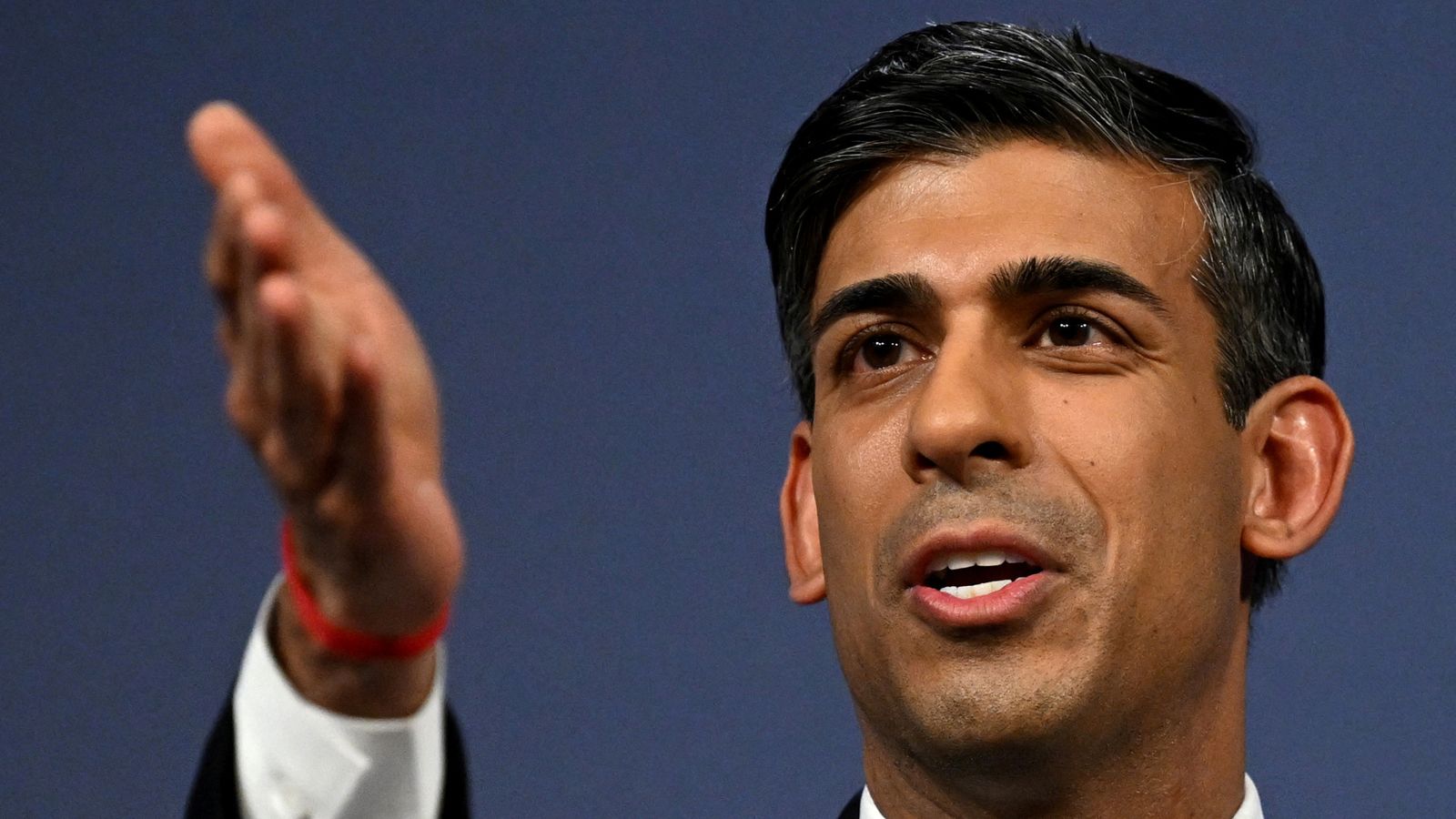Rishi Sunak seeks to maintain dialogue with China but will have to be clear about the threat

There’s a run on a bank, meltdown at the BBC about its proximity to government and Rishi Sunak needs to prove on Wednesday’s Budget that he has not abandoned growth.
Yet on Sunday the prime minister flew 5,000 miles to the US west coast to deal with a threat that may one day eclipse them all: China.
Mr Sunak will stand alongside US President Joe Biden and Australian PM Anthony Albanese and declare that China poses the biggest threat to the UK economy of any country, and what they plan to do about it.
This stops short of what Mr Sunak said during the leadership contest – that China poses the biggest long-term threat to Britain overall, implying some form of military danger.
Some analysts think that war over Taiwan could come in the second half of this decade, and no one knows how incendiary such a battle would be.
Nevertheless, the PM emphatically walked back from that on the plane with journalists on Sunday, saying it was neither “smart nor sophisticated” to use that language.
However what’s clear is that all three leaders have co-ordinated their language and approach to be unveiled on Monday, and that the mildly more moderate tone – which also saw Mr Sunak refuse to endorse the laboratory leak as the most likely cause of the pandemic – part of an approach to try and maintain a dialogue with China and not tip into unnecessary confrontation.
Leaving the door ajar, Mr Sunak said on the plane to the US that isolation was not the right approach, as it is effectively with Russia, suggesting he strongly believes future conflict is not yet inevitable.
Read more:
Cabinet Office told Hancock to tone down COVID lab leak claims in book, new messages show
UK’s ‘golden era’ with China ‘sent wrong message’, says Truss
Chinese governor pulls out of London trip after protests by senior MPs
Advertisement
“The size of their economy, it is necessary and right to engage with them in order to try and make a difference on things that we care about, whether that is for example, tackling climate change, global health, macroeconomic stability- that’s what all our allies think,” he said.
“Whether it’s Chancellor Scholz or President Macron going next month… President Biden, Albanese, I think everyone shares exactly the same approach which is not to ignore China [but] to engage, be robust about defending things that we care about, and engage with what is a very large and influential player on the global scene on the areas where there’s common interest or we can shape things in a positive direction.”
None of this means the government isn’t clear-eyed about the potential Chinese threat. They see China able to mobilise any part of its economy to advance the goals of the state – hence the ban on TikTok on government phones over the weekend.
There is recognition that half of the world’s shipping containers go through the straits of Taiwan, meaning that the economic disruption of war there would outweigh the impact of the invasion of Ukraine or the pandemic.
They saw what happened to free speech in Hong Kong and listened to the public pronouncements of President Xi Jinping, who just last week said the US and other “Western countries” were leading the “suppression” of China.
That is perhaps why the language might seem more moderate, but the actions in San Diego will not. Three of the biggest military powers in the world uniting to share intelligence and equipment to contain a threat in the Pacific is likely to be taken by China as a hostile act in itself.
In the latest update to the Integrated Review, Mr Sunak is effectively seeking to learn the lessons from Ukraine, creating new structures to speed up sanctions and ensure they are more effective. Meanwhile, building nuclear-powered submarines for Australia, at sites like the already-stretched Barrow in Furness site, is also likely to be greeted with concern by China.
The government believes that China is not yet at a tipping point where confrontation is inevitable. Whether the actions – if not the words spoken – of the next 36 hours make it more likely, however, remains to be seen.